Discover A Productive Conversation
A Productive Conversation

A Productive Conversation
Author: Mike Vardy
Subscribed: 6,802Played: 149,778Subscribe
Share
© 2025 Productivityist Inc.
Description
Hosted by productivity strategist Mike Vardy, A Productive Conversation offers insightful discussions on how to craft a life that aligns with your intentions. Each episode dives into the art of time devotion, productiveness, and refining your approach to daily living. Mike invites guests who are thinkers, doers, and creators to share their strategies for working smarter and living more intentionally. From practical tips to deep dives on mindset shifts, this podcast will help you reframe your relationship with time and find balance in a busy world.
Subscribe and join the conversation—because a productive life is more than just getting things done.
Subscribe and join the conversation—because a productive life is more than just getting things done.
651 Episodes
Reverse
This is a reflective, solo episode where I share twelve essential TimeCrafting tips—not as rules or resolutions, but as orienting ideas you can return to whenever your days feel scattered or misaligned. Think of this as a pause at the edge of the calendar year, and an invitation to relate to time differently. These tips are meant to be lived with, not completed. You don’t need all twelve. One idea is often enough to begin again. Whether you’re closing out a year or simply noticing that your relationship with time feels off, this episode offers a grounded way to reset without pressure.These twelve tips aren’t meant to be applied all at once—or perfectly. They’re ideas to return to when you notice drift, friction, or fatigue creeping in. Progress doesn’t require dramatic restarts. It asks for awareness, honesty, and the willingness to come back. Wherever you are in your year—or your life—I hope this episode helps you take a gentle step toward what matters.You don’t have to absorb all of this at once—just stay with it, and let one idea meet you where you are.During the episode, I mention both The 12 Days of TimeCrafting (which is a limited time offering) and my membership community. If you become a member, you'll have access to The 12 Days of TimeCrafting beyond its limited-time release period... and so much more. You can learn more about this community here.
In December 2024, Erik Fisher and I sit down to explore the alphabet of productivity — a tradition that started as a one-off idea and has now become an annual ritual. This year, we dove back in to see how our thinking has shifted, sharpened, or completely transformed. Turns out, a lot can change in a year… especially when life, work, and expectations rearrange themselves without asking permission.In this special episode of A Productive Conversation, Erik joins me to unpack the first half of our A-to-Z list – the second part is featured on Eriks' podcast, Beyond the to-Do List. It’s a rich mix of practice, philosophy, and the very human realities that shape how we show up to our work. If you’re craving a more grounded, nuanced approach to productivity, this conversation is an invitation to rethink your rhythms.Exploring productivity through the alphabet isn’t about clever wordplay — it’s about noticing how our relationship with work evolves year after year. Erik and I always walk away from these conversations reminded that productivity isn’t fixed; it’s lived. And in that spirit, we’ll pick up with N to Z on his show next. I hope you’ll join us there.
This time on A Productive Conversation, I sit down with someone who has spent decades at the intersection of technology, leadership, and what it means to remain truly human. Faisal Hoque isn’t just writing about AI from afar—he has lived inside this world for more than thirty years. From founding multiple companies to advising global organizations and government agencies, he brings a rare blend of deep technical expertise and grounded philosophical clarity.In this conversation, we get into his newest book, Transcend: Unlocking Humanity in the Age of AI, and explore the place where innovation meets conscience. We talk about fear and fascination, the frameworks that help us navigate uncertainty, and the practical ways AI is already reshaping how we think, work, and relate. It’s a wide-ranging, honest exchange about what we stand to gain—and what we can’t afford to lose.Six Discussion PointsWhy the rise of generative AI is only the beginning—and why thinking still mattersHow fear and fascination operate as “twin cousins” in our relationship with emerging technologyUsing the OPEN and CARE frameworks as complementary guides for opportunity and riskWhat organizations often overlook when AI governance becomes purely operationalThe philosophical crossroads ahead: outsourcing cognition vs. elevating human capacityHow empathy, devotion, and even love should shape the way we design and interact with technologyThree Connection PointsTranscend: Unlocking Humanity in the Age of AIFaisal’s websiteFaisal’s writing at Psychology TodayGetting to speak with Faisal reinforced something I’ve been thinking about for a long time: technology can extend what we do, but only we can determine who we become. AI may accelerate our output, sharpen our insights, and open new doors—but it can’t choose our purpose. That part remains ours. This conversation left me more convinced than ever that if we want a future worth inhabiting, we have to bring our humanity to the center of it.
This episode marks the final PM Talks conversation of the 2025 calendar year, and it’s a fitting one: Patrick and I explore legacy — not as something we engineer, but as something that unfolds in the stories others tell about us. As always, this episode is part of our monthly PM Talks series, and it might be the most reflective note we’ve ended on so far.We talk about time, presence, family, uncertainty, and the way small choices echo long after we’re gone. This one weaves philosophy into the everyday in a way that feels real, grounding, and honestly necessary as we close out the year.Six Discussion PointsWhy time feels like it’s accelerating as we age, and how presence slows the smaller slices of our daysThe balance between certainty and agency — and how we navigate what we do and don’t controlWhy trying to “control” your legacy is ultimately a losing battleHow stories — both true and inferred — shape the legacies we inherit and the ones we leaveThe importance of documenting your own story so others don’t have to invent one laterHow everyday tasks, decisions, and moments of presence quietly become the stories others use to remember usThree Connection PointsPatrick’s workThe Productivity DietOur episode on uncertaintyLegacy isn’t a monument — it’s a story, shaped by moments we’re often too busy to notice. This conversation reminded me that what endures isn’t the grand plan, but the small choices, the presence we bring, and the stories people choose to carry forward. Thanks for being with us through another year of PM Talks. There’s a lot more ahead in the next season.
Most of us think of sleep as a nightly event. Michael Breus thinks of it as a lifelong pattern—a shifting, evolving chronotype that changes as we age. Every time he joins me, we end up deep in the details of how rest, alertness, and biology shape our days. This conversation was no different.In this episode, Michael and I dig into the core ideas behind his book Sleep, Drink, Breathe, why wellness keeps getting more complicated, and how simple habits—done with intention—can create real momentum. We also get into mouth taping, CPAP myths, the rise of at-home sleep tests, and why hydration and breathwork may be more important than most people realize.Six Discussion PointsHow chronotypes shift as we age—and why both of us are noticing that shift right now.The three “dominoes” of wellness and why breathing and hydration often need fixing before sleep.Why wellness feels overwhelming today, and the simple starting points Michael recommends.The real science behind mouth taping and why it can be risky without proper screening.How home sleep testing has changed—and why diagnosing sleep apnea is easier than ever.The Sleep, Drink, Breathe plan and how small, steady habits build lifelong change.Three Connection PointsRead Sleep Drink Breathe: Simple Daily Habits for Profound Long-Term HealthGet Life Gives to the Giver by Joe PolishTake The Sleep QuizConversations with Michael always leave me thinking differently about how deeply biology shapes behaviour. His work reminds me that productivity isn’t a matter of pushing harder—it’s a matter of aligning with the rhythms that already exist. If you’re looking to simplify wellness, understand your changing chronotype, or build habits that actually last, this episode is a worthwhile listen.
In this episode of A Productive Conversation, I sit down with Quang X. Pham — entrepreneur, author, and the first American of Vietnamese descent to become a U.S. Marine Corps aviator. Quang’s story is the definition of an underdog’s rise — from a young refugee in America to leading a Nasdaq-listed biotech company. His new book, Underdog Nation: Zero in on Effort and Results for Success, captures the lessons learned through perseverance, purpose, and performance.Our conversation dives into what it truly means to be an underdog — not just in sports or business, but in life. We explore the power of confronting limitations, committing with conviction, and using adversity as fuel for achievement. Quang’s experiences in the Marine Corps, pharmaceutical industry, and biotech leadership bring nuance and depth to the conversation on resilience, effort, and results.Six Discussion PointsHow arriving in America as a 10-year-old refugee shaped Quang’s early understanding of effort and resultsLessons from his time as a U.S. Marine Corps aviator and how “reading the room” became a leadership skillWhy underdogs must balance confidence with humility — and learn to show up when no one’s watchingThe four “Avenues of Approach” from Underdog Nation: Commit, Confront, Course Correct, and Build CredibilityThe role of patience and decision-making in both biotech innovation and personal growthWhy ego and insecurity are the biggest internal battles underdogs face — and how to replace them with clarity and focusThree Connection PointsVisit Quang's websiteGet Quang's bookWhile you're buying Quang's book, buy Hugh MacLeod's book tooThis conversation reminded me that success isn’t about where you start — it’s about what you choose to confront, commit to, and continue refining. Quang’s story proves that perseverance and patience go hand-in-hand, and that results come to those who focus not on optics, but on outcomes.
This episode of A Productive Conversation features Chris Dalla Riva, a musician, data analyst, and Senior Product Manager at Audiomack who bridges the gap between creativity and analytics. Chris joins me to discuss his book Uncharted Territory: What Numbers Tell Us About the Biggest Hit Songs and Ourselves.As part of his research, Chris listened to every Billboard Hot 100 number-one song—nearly 1,200 of them—tracking trends, rating songs, and discovering how randomness, technology, and taste shape what becomes a hit. We explore the intersection of numbers and nuance, how data can deepen our understanding of art, and what the patterns of pop music reveal about us.Six Discussion PointsThe origin of Chris’s experiment to listen to every Billboard number-one hitWhy Bob Dylan never topped the Hot 100—and what that says about luck and timingHow data, subjectivity, and quality intertwine when rating songsThe cyclical nature of musical trends, from movies to TikTokThe uneasy relationship between music and technology—from Auto-Tune to AIWhy the album format—and vinyl—still matter in a streaming worldThree Connection PointsCheck out Chris's newsletterBuy Chris's bookRead Mike's essay, The Sound of TimeChris and I cover a lot of ground in this conversation—from Bob Dylan’s surprising chart record to the influence of AI on modern music. If you’ve ever wondered what hit songs say about culture, creativity, and ourselves, this episode hits all the right notes.
This latest edition of our monthly PM Talks series dives into a topic that underpins nearly everything we do: trust. From trusting the moment you’re in to trusting the systems you build, Patrick Rhone and I explore how this single word quietly defines the way we live, work, and connect.In this conversation, we move from the personal—trusting ourselves, our instincts, and our attention—to the societal, exploring what happens when trust erodes in our institutions, technology, and even the tools meant to make life easier.Six Discussion PointsWhy trusting the moment enhances presence—and how presence strengthens trust.How trust manifests in everyday choices, like buying a car or managing a calendar.The connection between simplicity, minimalism, and building trustworthy systems.Why democracy, money, and even productivity all rest on unseen foundations of trust.The difference between a trusted system and your trusted system.How patience, presence, and attention preserve trust over time.Three Connection PointsPatrick's blog post on trustWatch The Big Short and/or Margin CallListen to Episode 596: Curiosity | PM Talks S2E3Trust isn’t static—it’s something we build, test, and sometimes rebuild. Whether you’re trying to trust your tools, your timing, or yourself, I hope this episode helps you see where trust already lives in your life—and where it might need a little reinforcement.
In this episode of A Productive Conversation, I sit down with James Kimmel Jr., JD — a Yale lecturer, lawyer, and leading researcher on the neuroscience of revenge. His new book, The Science of Revenge: Understanding the World’s Deadliest Addiction—and How to Overcome It, explores why our brains crave retaliation and how forgiveness can literally rewire us toward peace.Our conversation begins with a deeply personal story that shaped James’s life’s work and unpacks how revenge functions like an addiction — one fueled by pain, dopamine, and unchecked desire. What follows is a fascinating look at how our minds process grievance, why forgiveness is a neurological superpower, and how awareness can keep us from being consumed by cycles of anger and retaliation.Six Discussion PointsHow a violent act of bullying led James to study the neuroscience of revengeThe brain’s pain and reward circuits — and how they make revenge feel like a drugWhy grievances compound and can trigger impulsive reactionsThe distinction between self-defense, grief, and revengeHow forgiveness shuts down the brain’s pain network and restores self-controlWhy awareness, reflection, and tools like journaling can help break the revenge cycleThree Connection PointsGet James's bookVisit James's websiteCheck out the Miracle Court appThis conversation reminded me that the pause — that small, deliberate moment between grievance and reaction — can change everything. James’s work shows us that forgiveness isn’t about excusing others; it’s about freeing ourselves. I hope this episode helps you reflect on where small moments of release might lead to greater clarity, peace, and yes, productiveness.
In this episode, I sit down with Hannah Bookbinder, founder of AcademicAlly, LLC, and creator of the MyTOAD App—an innovative tool designed to help people manage time, organization, accountability, and focus. With over 25 years of experience supporting neurodivergent individuals, Hannah brings both expertise and empathy to the conversation.We explore how understanding one’s unique wiring leads to better productivity and a stronger sense of agency. Hannah’s insights reveal how reframing ADHD through curiosity, compassion, and structure can turn what feels like chaos into capability.Six Discussion PointsThe story behind the MyTOAD App and how it helps users manage time, organization, accountability, and focus.Why “Eat That Frog” doesn’t always work for neurodivergent minds—and what to do instead.How self-awareness and emotional check-ins can transform productivity habits.The role of journaling as both reflection and regulation—tailored to each individual’s comfort level.Rethinking ADHD: seeing it as a source of strength rather than a villain to defeat.How Hannah’s mission now extends beyond individuals to schools, businesses, and healthcare organizations.Three Connection PointsCheck out MyTOADAppRead the bookCheck out Hannah on InstagramThis conversation with Hannah reminded me that productivity isn’t about conformity—it’s about compatibility. When we learn to align with our wiring instead of resisting it, we uncover the capacity to work with time instead of against it. Whether you’re neurodivergent or simply human, there’s wisdom here worth dialing into.
In this episode of A Productive Conversation, I sit down with Anthony Verdino — a licensed clinical social worker and author of CBT Simplified. Drawing from both his professional expertise and personal story of resilience, Anthony shares how cognitive behavioral therapy (CBT) can be applied beyond the therapy room — into the way we think, act, and feel in our everyday lives.We explore how small shifts in thought and behavior can create profound changes in productivity and well-being, especially in a world that often mistakes busyness for progress. Anthony offers practical ways to align mindset with action and shows how reframing, acceptance, and self-care can transform not just how we work, but how we live.Six Discussion PointsThe core principles of CBT and how Anthony distilled them into a simple, visual modelHow self-monitoring and self-assessment connect directly to productivity and personal growthWhy reframing “should” into “could” turns guilt into empowermentThe danger of perfectionism and how embracing imperfection fosters balance and progressThe role of self-care and mindfulness in preventing burnout and building resilienceHow to make CBT principles second nature through consistent reflection and small, mindful actionsThree Connection PointsAnthony's websiteAnthony's bookMy TEDx Talk: “How to Stop Time”Our conversation reminded me how productivity and psychology share the same foundation: awareness and choice. Whether you’re managing your focus, emotions, or time, the work begins by observing your thoughts, reframing them, and then moving forward — not perfectly, but intentionally.
When you’re managing ADHD—or simply navigating the distractions of modern life—traditional productivity tools often fall short. My guest, Skye Waterson, knows this better than most. A former academic turned ADHD coach and founder of Unconventional Organisation, Skye has helped hundreds of professionals—from entrepreneurs to executives—craft systems that support their unique brains instead of fighting against them.In this conversation, Skye and I explore the science behind ADHD, the myths that persist around productivity, and how to design frameworks that meet you where you are. Whether you’ve been diagnosed, suspect you might have ADHD, or simply want to focus better in a world full of noise, this episode offers practical wisdom grounded in research and real experience.Six Discussion PointsThe turning point during Skye’s PhD that led to her ADHD diagnosis—and her shift from academia to coaching.Why common productivity systems like the Pomodoro Technique aren’t built for ADHD brains.How dopamine differences influence motivation, focus, and task initiation.The “Focus Formula” method Skye teaches high-achieving clients to identify what’s truly urgent and important.The role of transitions, zones, and small “dopamine boosters” in sustaining attention.How leadership and neurodiversity intersect—and why we need more research on ADHD in executive roles.Three Connection PointsUnconventional OrganisationThe ADHD Skills Lab PodcastEpisode 625: Jesse J. Anderson Talks About ADHD, Extra Focus, and Finding FlowTalking with Skye reminded me that productivity is never one-size-fits-all—it’s about alignment, not conformity. Her evidence-based yet deeply human approach to ADHD management offers lessons anyone can apply: simplify, start small, and give yourself permission to work with your brain, not against it.
This episode is the latest in our monthly series PM Talks, where Patrick Rhone and I dive into ideas that shape the way we approach work, time, and life. In this conversation, we explore the theme of clarity—how it shows up in our days, why it matters, and what can get in the way of it.Patrick and I both share personal stories—from missed football games to unexpected ISP issues—that highlight how clarity isn’t something we stumble upon, but something we need to cultivate. We talk about how structure and spontaneity coexist, and how clarity can be found even when life throws curveballs (or waves, as one Zen monk would put it).Six Discussion PointsWhy sports outcomes and emotional responses can affect clarity in daily lifeThe value of scaffolding (like time theming) to provide focus without rigidityLessons from the New Yorker article Can You Really Live One Day at a Time?Insights from Paul Loomans’ Time Surfing and how it relates to productivity practicesThe role of feelings: how they can cloud or create clarityThe practice of taking a “Clarity Day” to step back, reflect, and resetThree Connection PointsPatrick Rhone’s WebsiteThe Productivity Diet by Mike Vardy“Can You Really Live One Day at a Time?” – The New YorkerClarity isn’t about controlling every moment—it’s about navigating the waves of life with intention and awareness. I hope this episode gives you a chance to pause, reflect, and maybe even consider setting aside your own Clarity Day.
In this episode of A Productive Conversation, I sit down with Jesse J. Anderson, a writer, speaker, coach, and ADHD advocate whose work has resonated with countless people navigating life with ADHD. He’s the author of Extra Focus: The Quick Start Guide to Adult ADHD and the voice behind the popular newsletter of the same name.Jesse brings a mix of humor, honesty, and lived experience to the conversation. We dive into the challenges of attention, time, and motivation—and the strategies that can help not only those with ADHD, but anyone who wants to work with their brain instead of against it.Six Discussion PointsHow Jesse’s diagnosis at 36 reframed his past struggles and opened new possibilities.The concept of the “clockless mind” and why time feels so different for those with ADHD.The oscillation between friction and flow—and how to recognize both.Jesse’s “4Cs” framework (Captivate, Create, Compete, Complete) for unlocking motivation.Rejection Sensitive Dysphoria (RSD) and how it impacts relationships and self-perception.Why strategies like adding action verbs to tasks and “eating the ice cream first” can help create momentum.Three Connection PointsJesse's Extra Focus newsletterGet Jesse's BookListen to APC 164: Faster Than Normal with Peter ShankmanTalking with Jesse reminded me that productivity isn’t one-size-fits-all. Whether you live with ADHD or simply want to work more effectively, strategies like the 4Cs and reframing how you view time can shift the way you approach your day. I hope you’ll check out Jesse’s work and experiment with some of these ideas yourself.
On this episode of A Productive Conversation, I sit down with Leslie Grandy, author of Creative Velocity: Propelling Breakthrough Ideas in the Age of Generative AI. Leslie is a global product executive turned CEO advisor who helps organizations unlock creative thinking to accelerate growth. Her decades of leadership at Apple, Amazon, Best Buy, and T-Mobile give her a unique perspective on how creativity, technology, and leadership intersect.Our conversation explores why creativity isn’t limited to artists, how space and time fuel ideation, and what role emotional regulation plays in sustaining momentum. We also dig into how precision, AI, and frameworks can both hinder and propel breakthrough ideas. If you’ve ever doubted your own creativity—or wondered how to harness it consistently—you’ll want to hear this one.Six Discussion PointsWhy many professionals mistakenly believe they aren’t creative—and how to reframe that thinking.The power of space—whether walking, running, or even showering—in activating creative flow.Precision as both a driver and deterrent of creative velocity, depending on how it’s applied.Emotional regulation and equanimity as essential tools for sustaining creativity without burnout.How to think about velocity beyond speed—focusing on predictability, quality, and intentional triggers.Using AI as a creative collaborator through structured frameworks to expand possibilities without chaos.Three Connection PointsGet Leslie's bookWatch John Cleese’s classic talk on creativityCheck out NotebookLMThis conversation with Leslie reminded me that creativity isn’t an exclusive club—it’s a capacity we all share, provided we give ourselves the time, space, and intention to use it. Whether you’re leading a team, writing your next book, or simply looking to bring more meaning to your daily choices, Leslie’s insights on creative velocity offer a clear path forward.
I had the chance to sit down with Neil Ghosh, a seasoned executive whose work has spanned the nonprofit, government, philanthropic, and private sectors. He’s also the author of Do More Good: Inspiring Lessons from Extraordinary People, a book filled with stories of leaders, visionaries, and everyday people who embody the power of empathy, courage, and action.In our conversation, Neil and I dove into the importance of perspective, why empathy isn’t a “soft” skill but a strategic one, and how small actions can have extraordinary impact. We explored how his upbringing in Kolkata shaped his worldview, the lessons he learned from people like John McCain and Shimon Peres, and why legacy is something you influence—but never fully control.Six Discussion PointsWhy doing more good is different from simply doing more.The value of travel—both near and far—in broadening empathy and perspective.Lessons from John McCain about honoring principles and bridging divides.The role of humility and how serving with it can reshape leadership.How listening deeply—not just hearing—creates space for meaningful change.Why legacy is less about control and more about the small, consistent actions we leave behind.Three Connection PointsNeil’s book: Do More Good5 Steps Anyone Can Take to “Do More Good” and Make a Lasting Impact | Success MagazineYour Time is Not Thine: Rethinking “Know Thy Time”Conversations like this remind me that productivity isn’t about output for its own sake—it’s about impact. Neil’s perspective reinforces the idea that empathy, humility, and legacy aren’t separate from our work, but central to it. I hope this episode leaves you inspired to do not just more, but more good.
This episode is the latest in our monthly PM Talks series, and Patrick Rhone and I dive into the idea of connection—what it means, how it shows up in unexpected ways, and why it’s such a powerful force in our lives. From sports teams and fandoms to faith, empathy, and even the role AI can play in everyday decisions, we explore how connection shapes the way we live, work, and relate to the world.As always, the conversation is a mix of personal stories, practical reflections, and thoughtful insights. It’s one of those talks that started in one place (football fandom, of all things) and wound its way toward something bigger—how our connections help us build meaning, resilience, and compassion in a busy, noisy world.Six Discussion PointsHow fandom and sports teams spark lifelong connections—sometimes for surprising reasons.Why values strengthen or weaken our bonds, whether with people, communities, or organizations.The role empathy and compassion play as natural outcomes of genuine connection.How faith, rituals, and shared traditions anchor identity and belonging.The importance of questioning what we connect to and why, especially in daily life.How tools like AI can reduce decision fatigue and help free us up for deeper connections.Three Connection PointsPatrick's WebsiteThe Fundamentals with David Robinson(s)A conversation with Martin Sheen and Rick Steves on the value of travel and "The Way"At its heart, this episode reminds us that connection is about much more than shared interests—it’s about empathy, values, and the choices we make every day. I hope you find it as thought-provoking to listen to as it was for us to record.
In this episode of A Productive Conversation, I sit down with Chris Ducker—serial entrepreneur, bestselling author, and longtime friend—to talk about his latest book, The Long Haul Leader: 10 Strategies to Work Smarter, Live Better, and Achieve Lasting Success. Chris has spent over two decades building, buying, and selling businesses, while mentoring leaders worldwide.Our conversation goes beyond business tactics. Chris shares candid stories of burnout, rebuilding, and how energy—not time—is the most valuable asset for sustainable success. From the importance of patience to the role of hobbies in leadership, this episode offers insight into what it really takes to thrive for the long haul.Six Discussion PointsWhy hustle is a season, not a lifestyleThe lessons Chris learned from battling burnout—twiceWhy energy is more valuable than time for leadersThe art of letting go: selling businesses and focusing on what mattersHow patience, adaptability, and presence shape long-term leadershipWhy hobbies and creative outlets are vital to performance and recoveryThree Connection PointsGet Chris's Book: The Long Haul LeaderThe Long Haul Leader SummitChris's websiteChris’s story is a reminder that success isn’t just about building businesses—it’s about building sustainability into your life and work. The principles he shares in The Long Haul Leader apply whether you’re running a company, leading a team, or simply trying to create a healthier balance for yourself.
In this episode of A Productive Conversation, I welcome Ben Amos—video strategist, producer, international speaker, and author of Engage: The Definitive Guide to Video Strategy for Business. Ben has helped brands and entrepreneurs around the globe cut through the noise and connect with their audiences through intentional video.We dig into why strategy must come before tactics, how to identify your ideal audience, and the real role video can play in building relationships that convert. This isn’t about shiny equipment or the latest platform—it’s about clarity, focus, and showing up with purpose.Six Discussion PointsWhy the pandemic accelerated the adoption and acceptance of videoThe Sun Tzu quote that shapes Ben’s approach: “Tactics without strategy is the noise before defeat”How to define your audience with a singular avatar—and why that mattersSetting clear goals for each video in alignment with the customer journeyThe seven elements of video strategy and why production comes lastPractical tips for repurposing podcasts and long-form content into impactful short videosThree Connection PointsEngage: The Definitive Guide to Video Strategy for BusinessBen's websiteEngage Video Marketing PodcastTalking with Ben reminded me that video doesn’t need to be overwhelming. With a strategy-first mindset, it becomes less about keeping up with trends and more about connecting with the right people at the right time. Whether you’re starting fresh or rethinking your current approach, Ben’s insights are the kind that can change how you view video in your work.
In this episode of A Productive Conversation, I sit down with Michael Timms—TEDx speaker, leadership consultant, and author of How Leaders Can Inspire Accountability. This conversation is a part of our ongoing exploration into the habits that drive not just productivity, but the kind of leadership that inspires lasting impact.Michael unpacks how accountability is often misunderstood and misused—weaponized as blame rather than cultivated as ownership. We explore what it means to truly support people to be accountable, the distinction between leadership and management, and the systems thinking leaders must embrace to avoid finger-pointing and foster real results.Six Discussion PointsWhy “holding people accountable” is the wrong approach—and what to say insteadThe critical distinction between leadership and managementHow self-awareness and humility form the foundation of great leadershipWhat journaling, feedback, and asking for advice all have in commonThe three habits of inspiring accountability—and why they work in harmonySystems thinking: how leaders can engineer solutions that prevent future issuesThree Connection PointsHow Leaders Can Inspire AccountabilityMichael's TEDx Talk – How to Claim Your Leadership PowerWhy Reading Leadership Books will Boost Your ProductivityThis conversation with Michael was a powerful reminder that the best leaders don’t point fingers—they build frameworks. If you're looking to lead with more clarity, humility, and purpose, I highly recommend picking up his book and watching his TEDx talk. True accountability isn’t about control—it’s about connection.


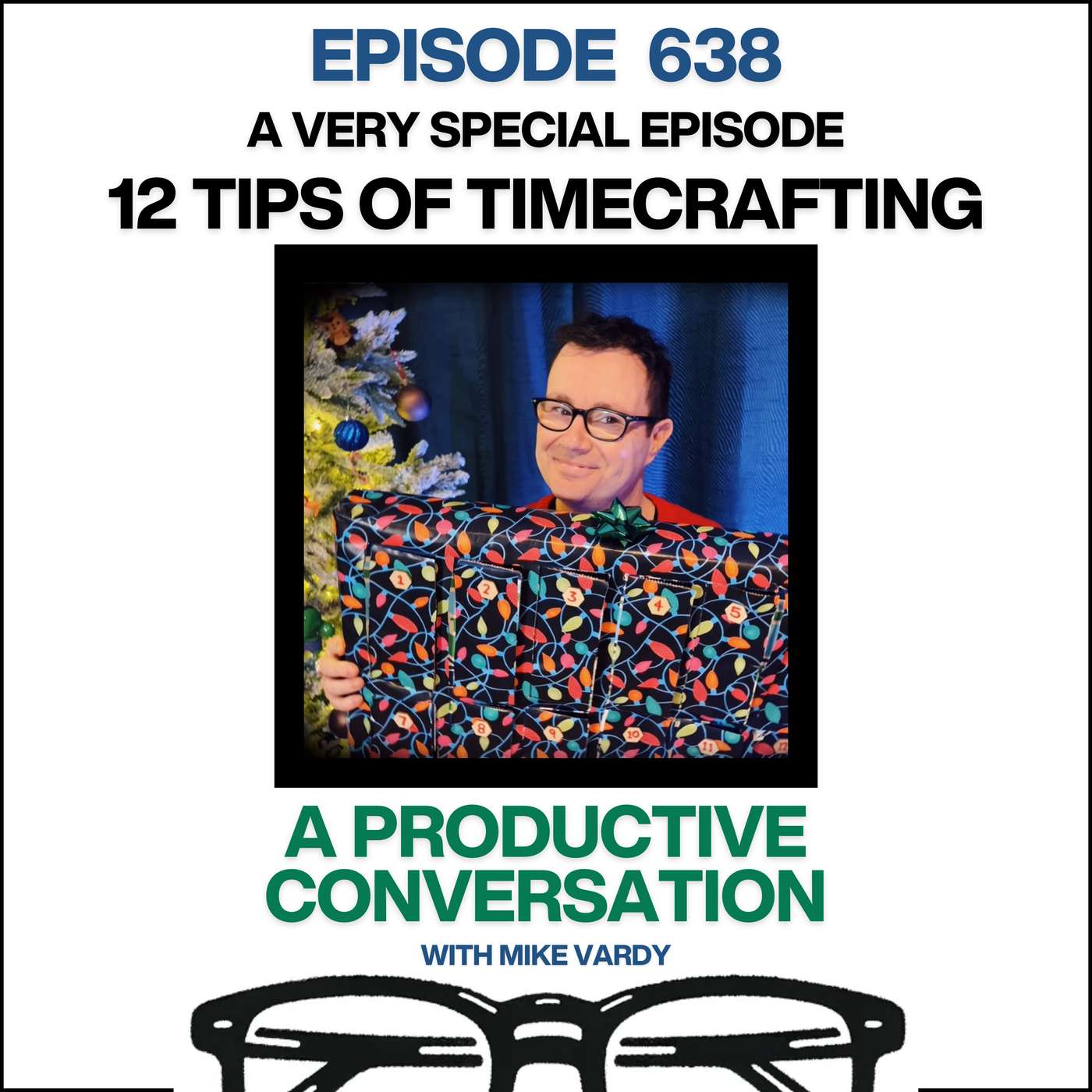
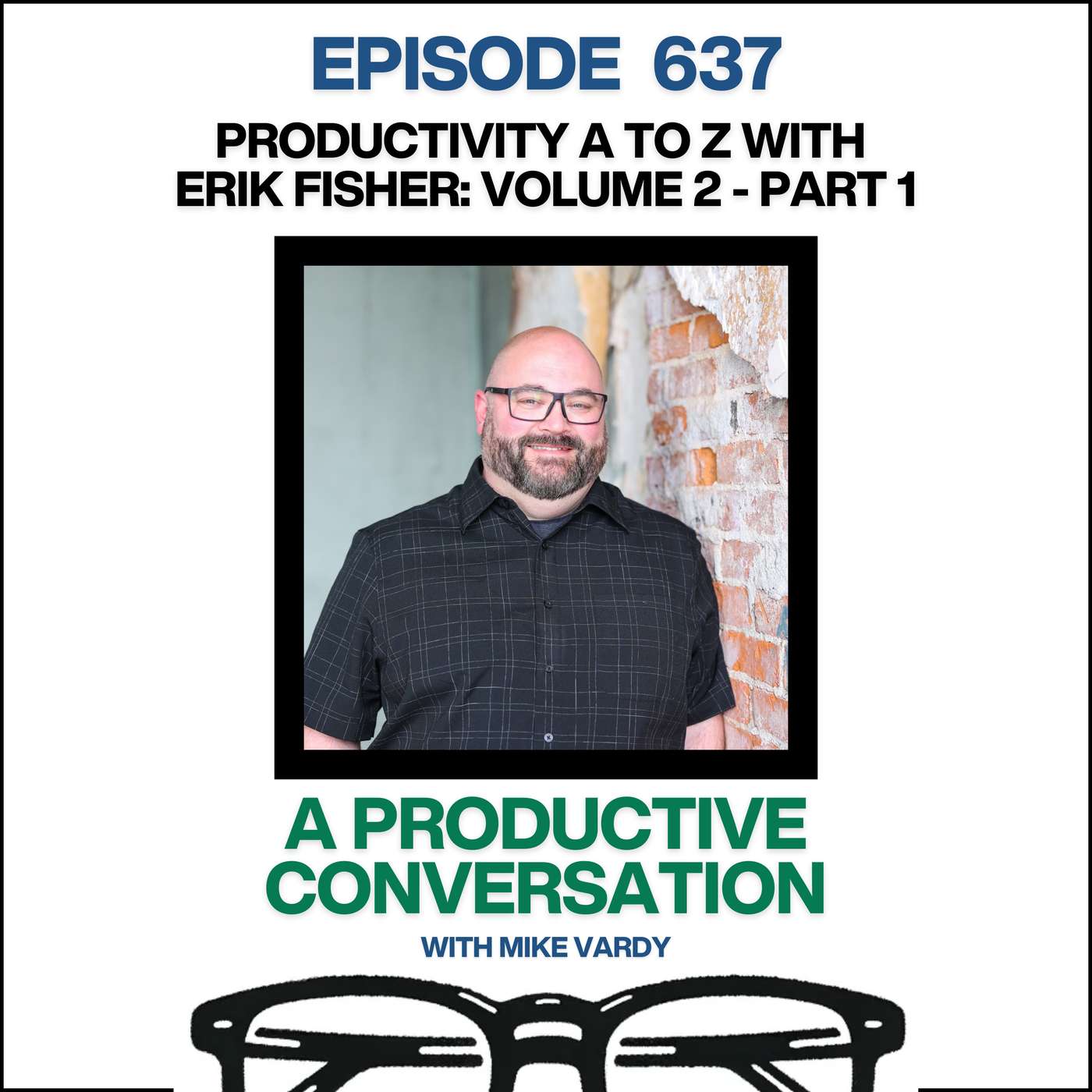
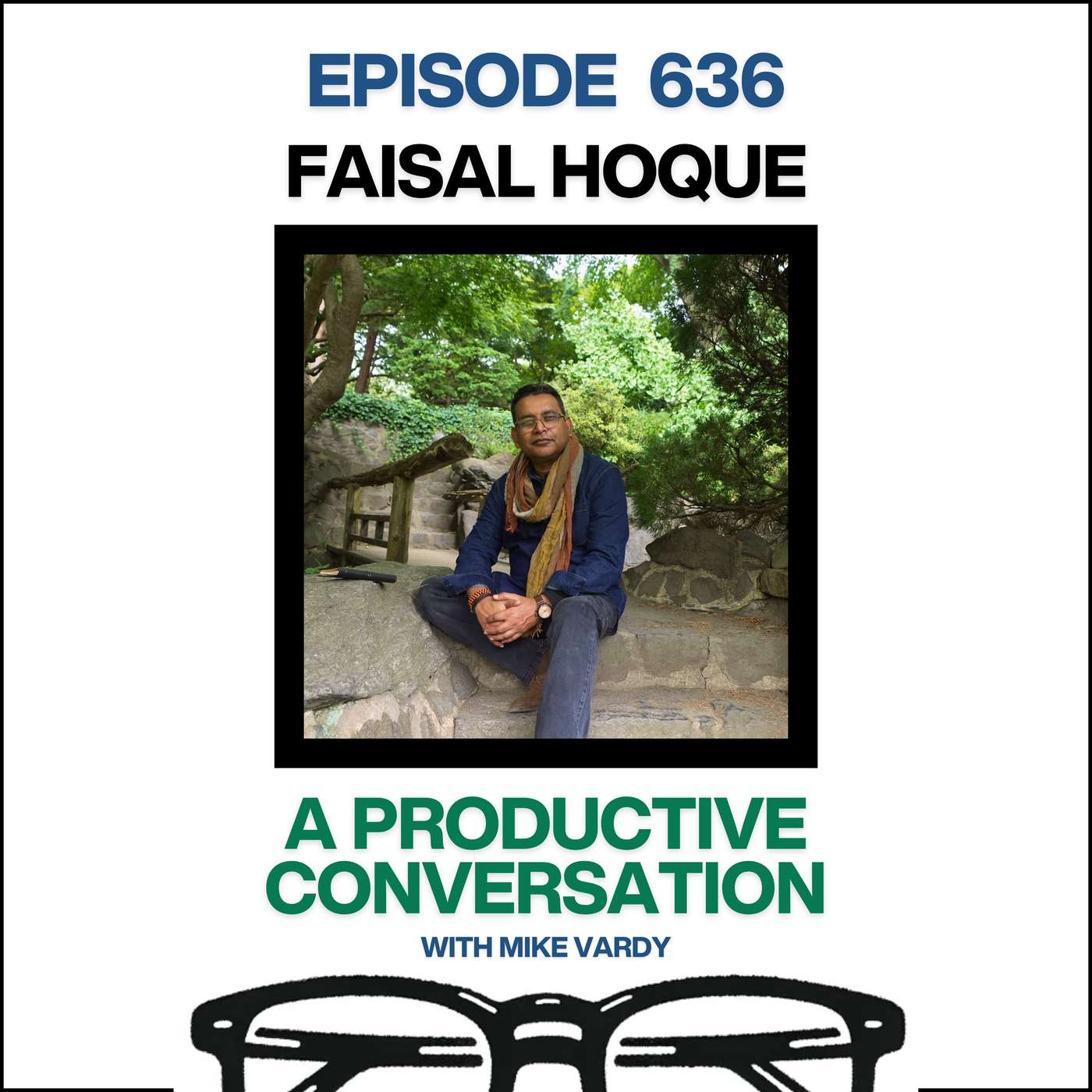
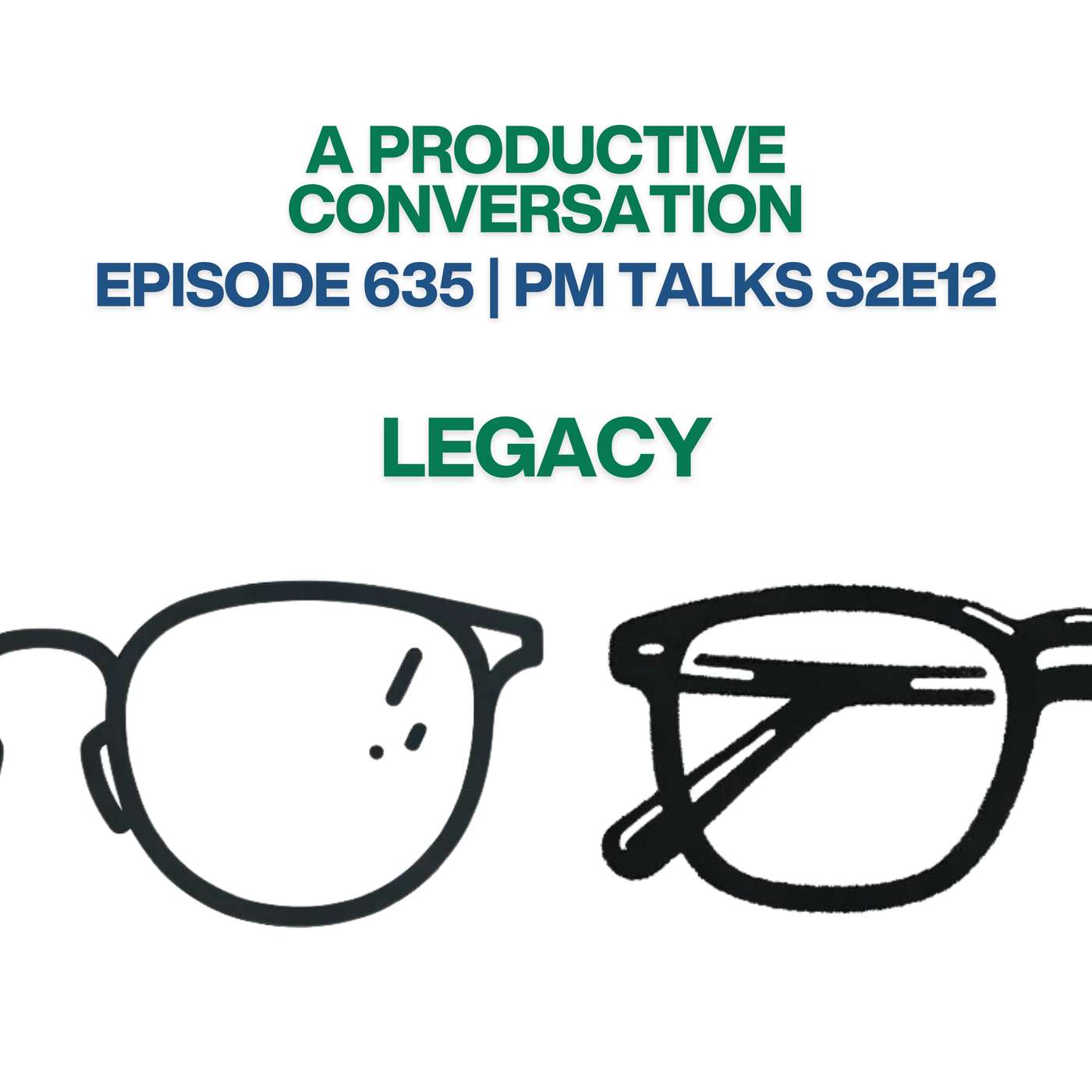
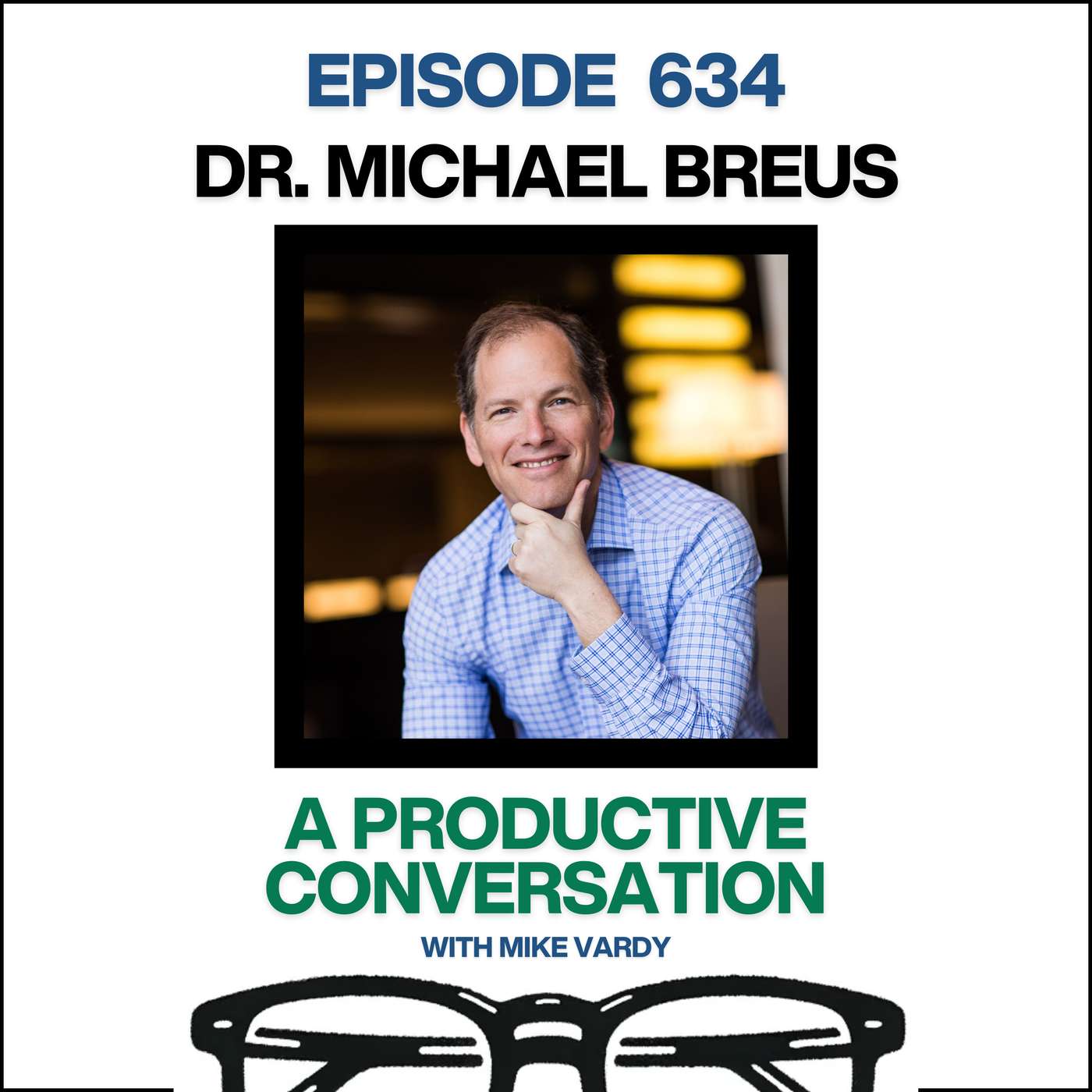
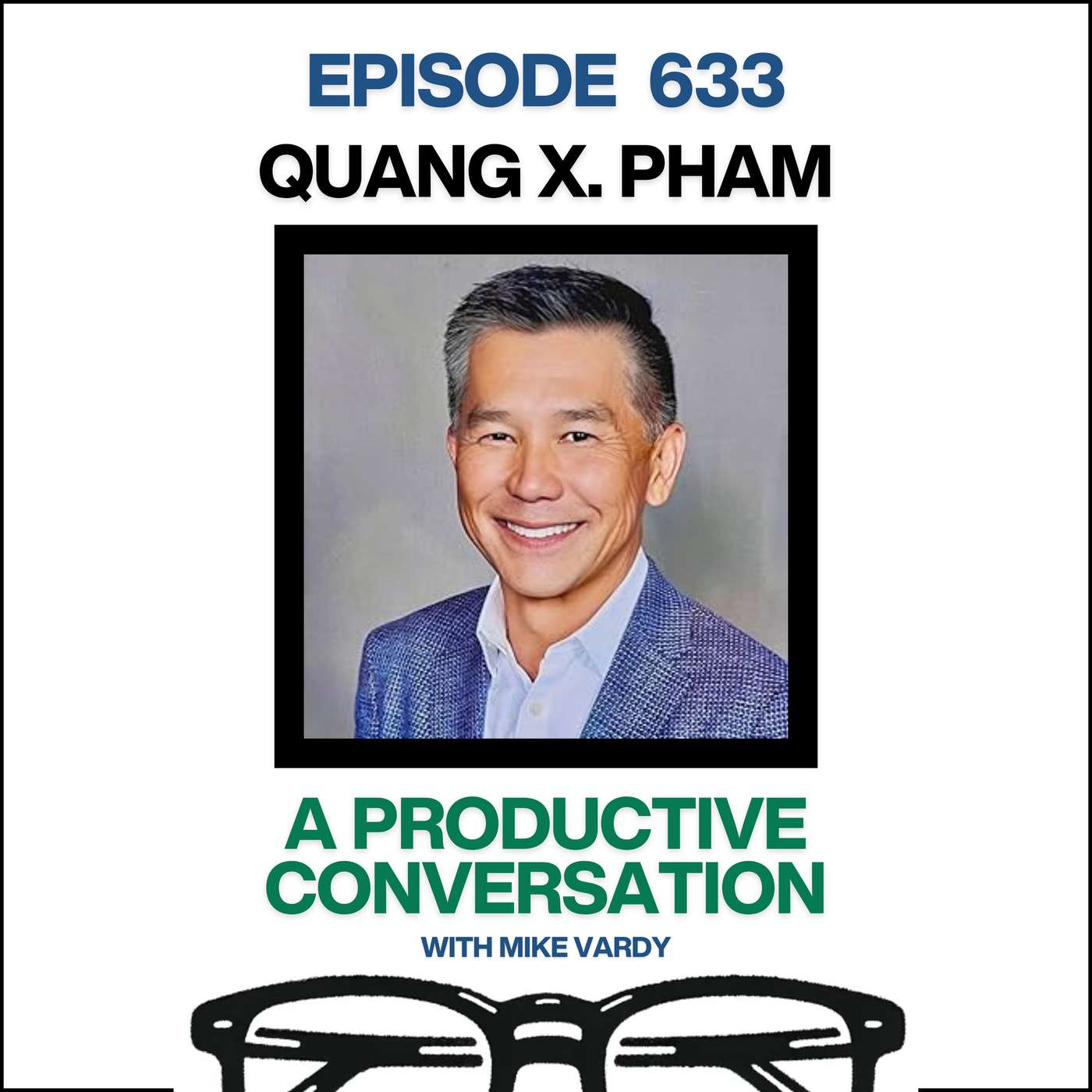
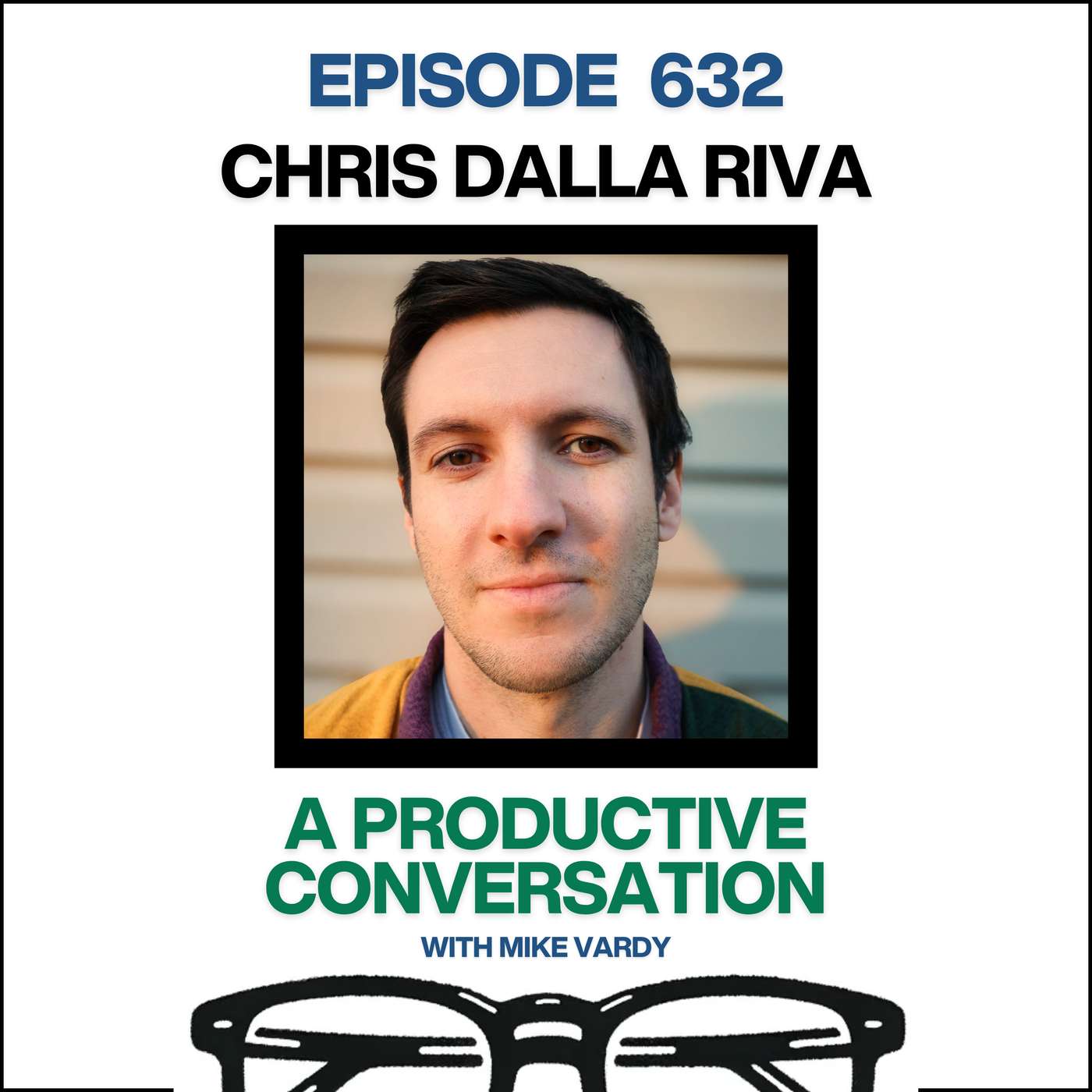
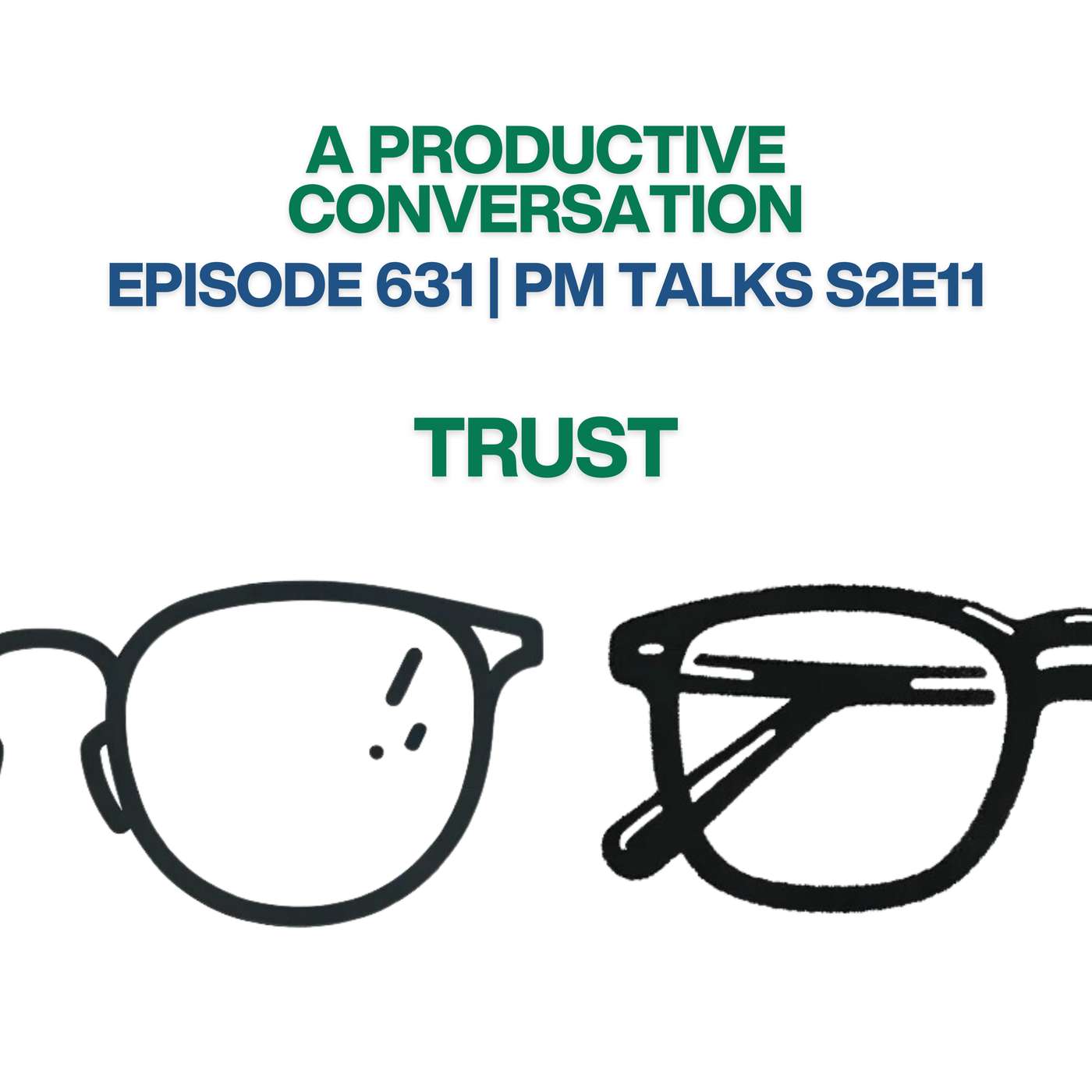
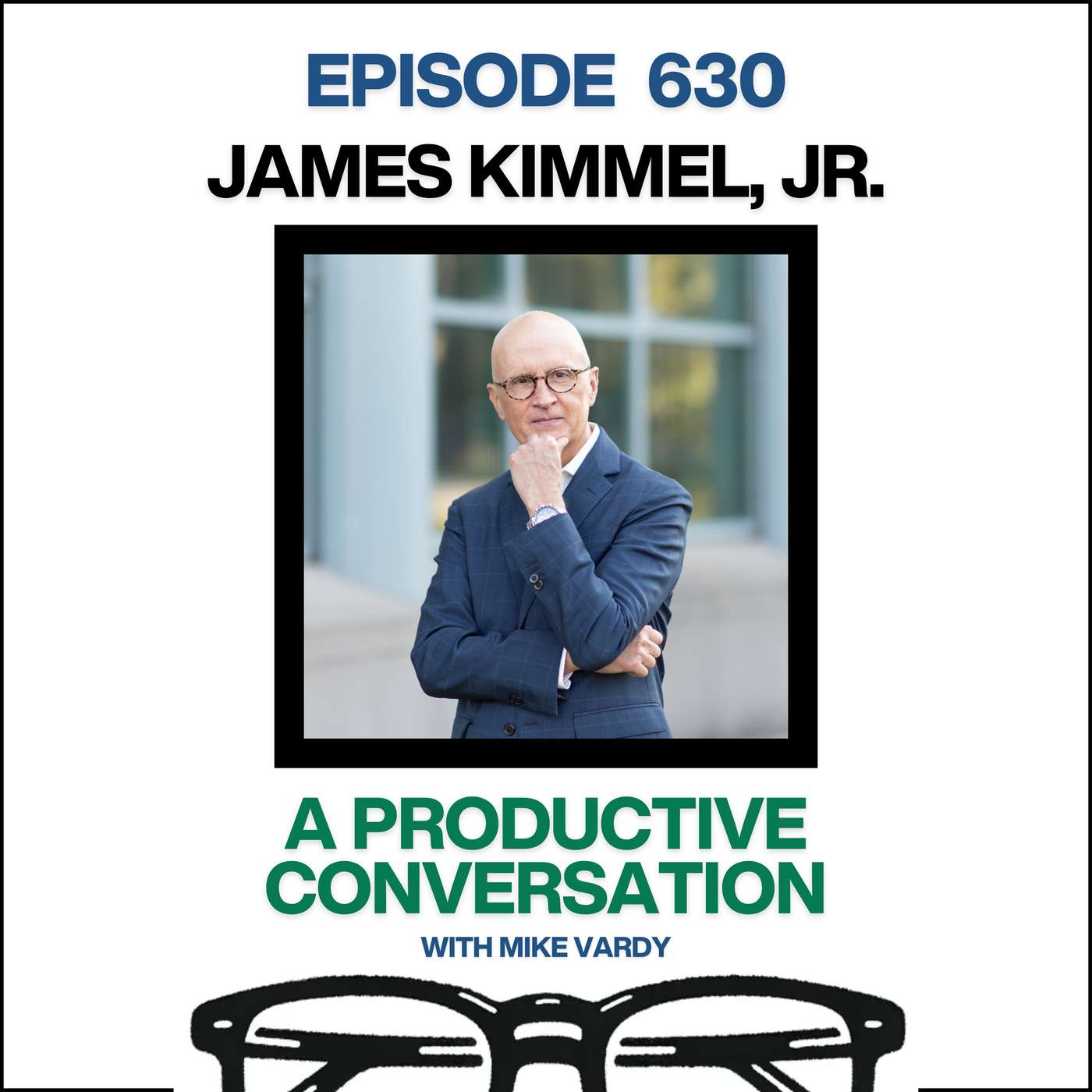
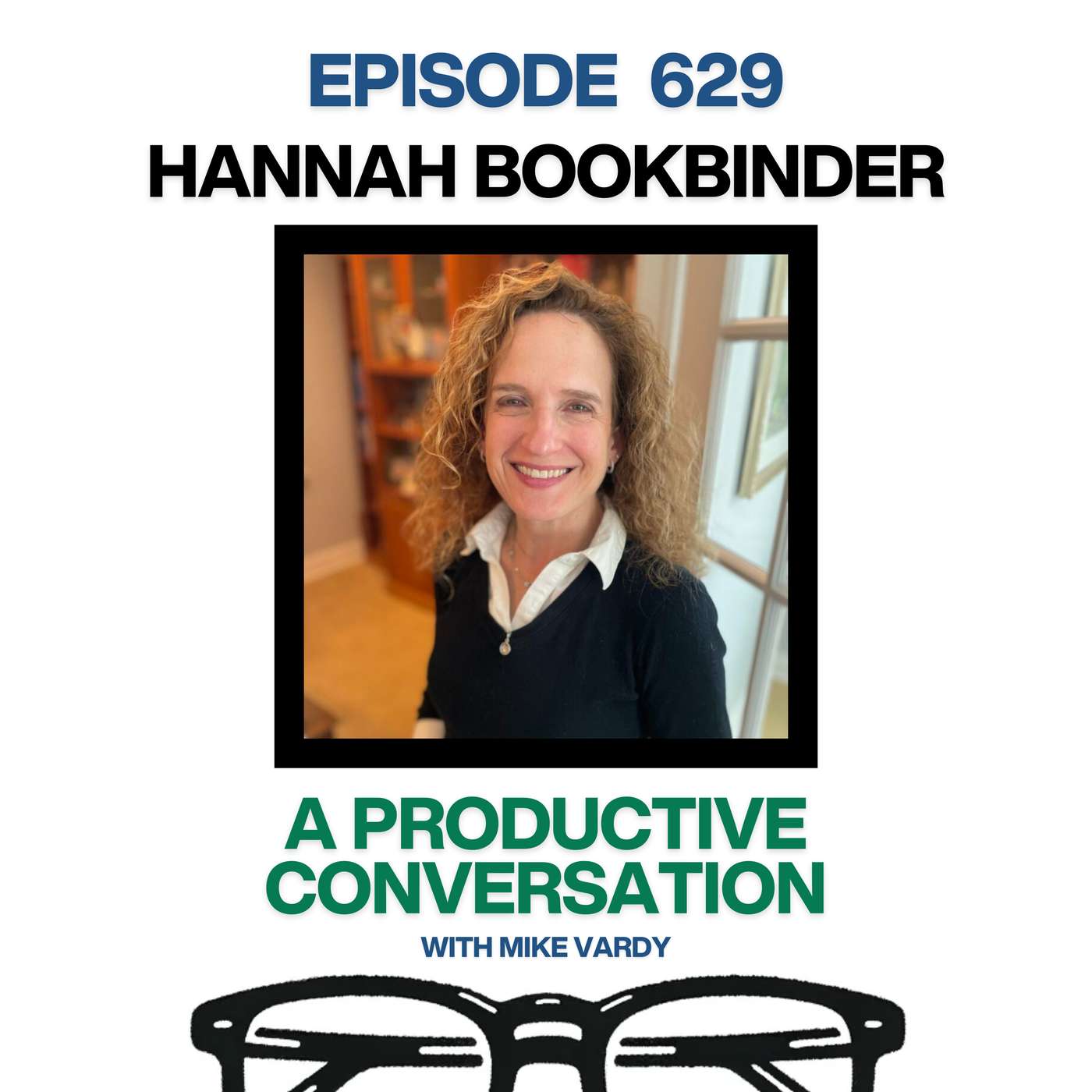
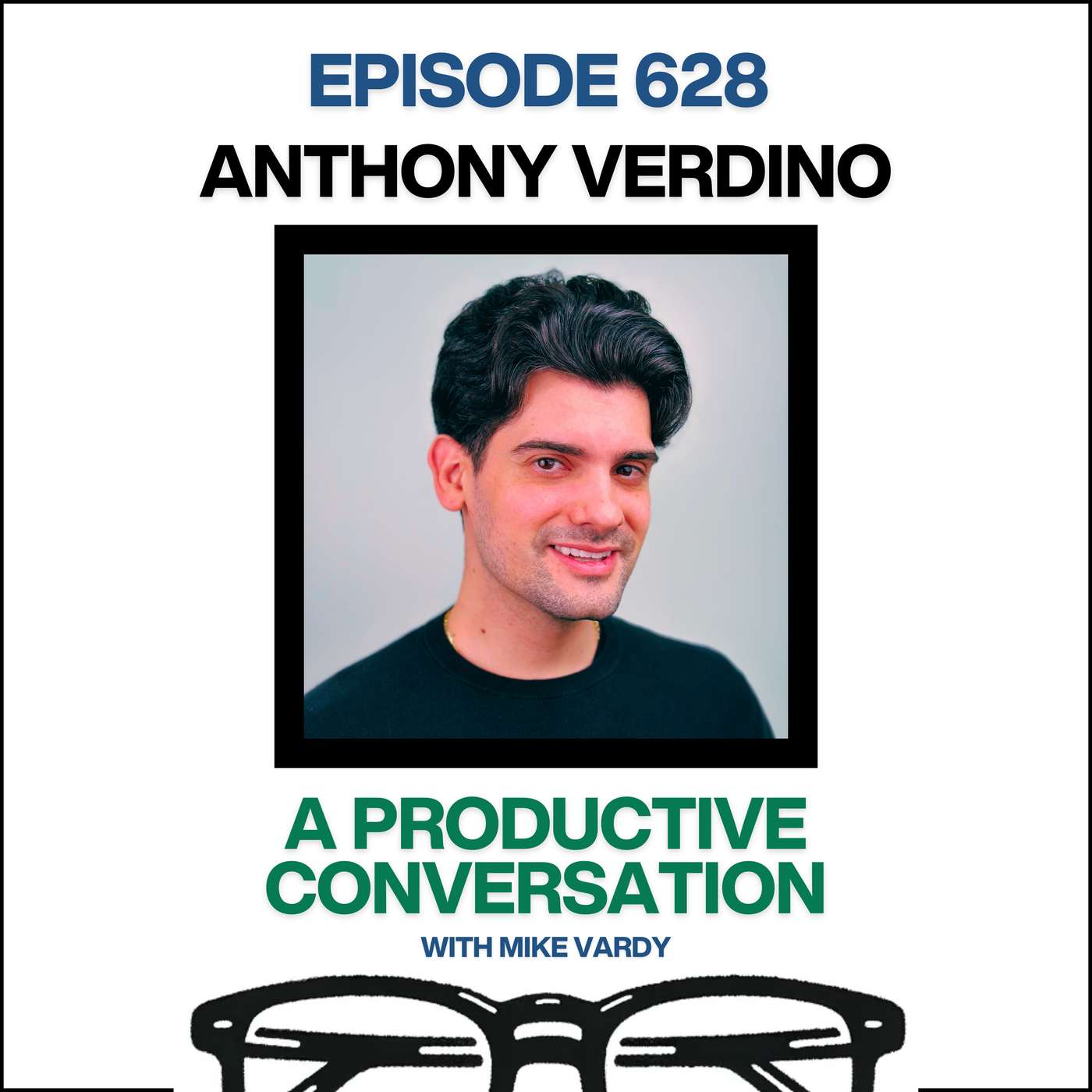
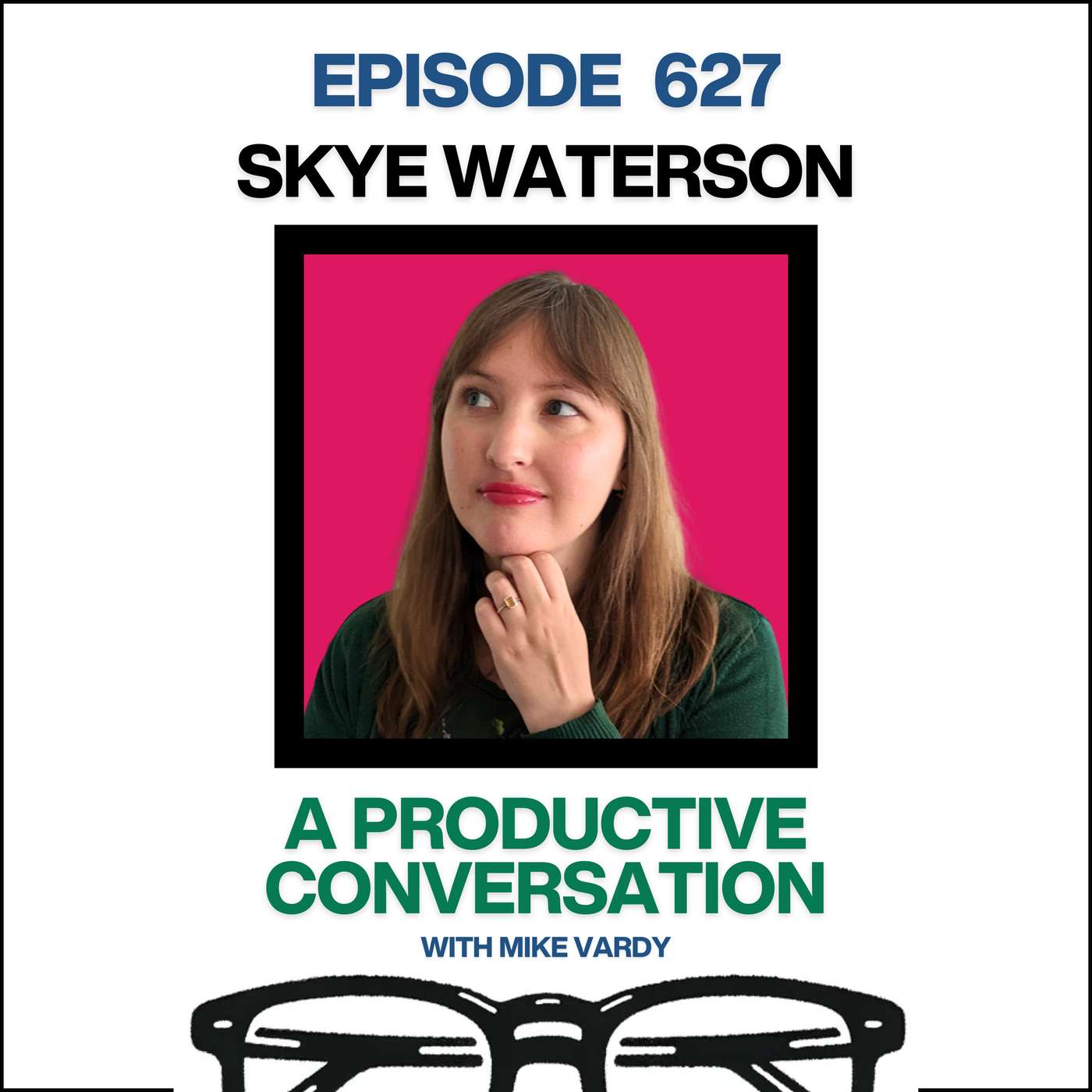
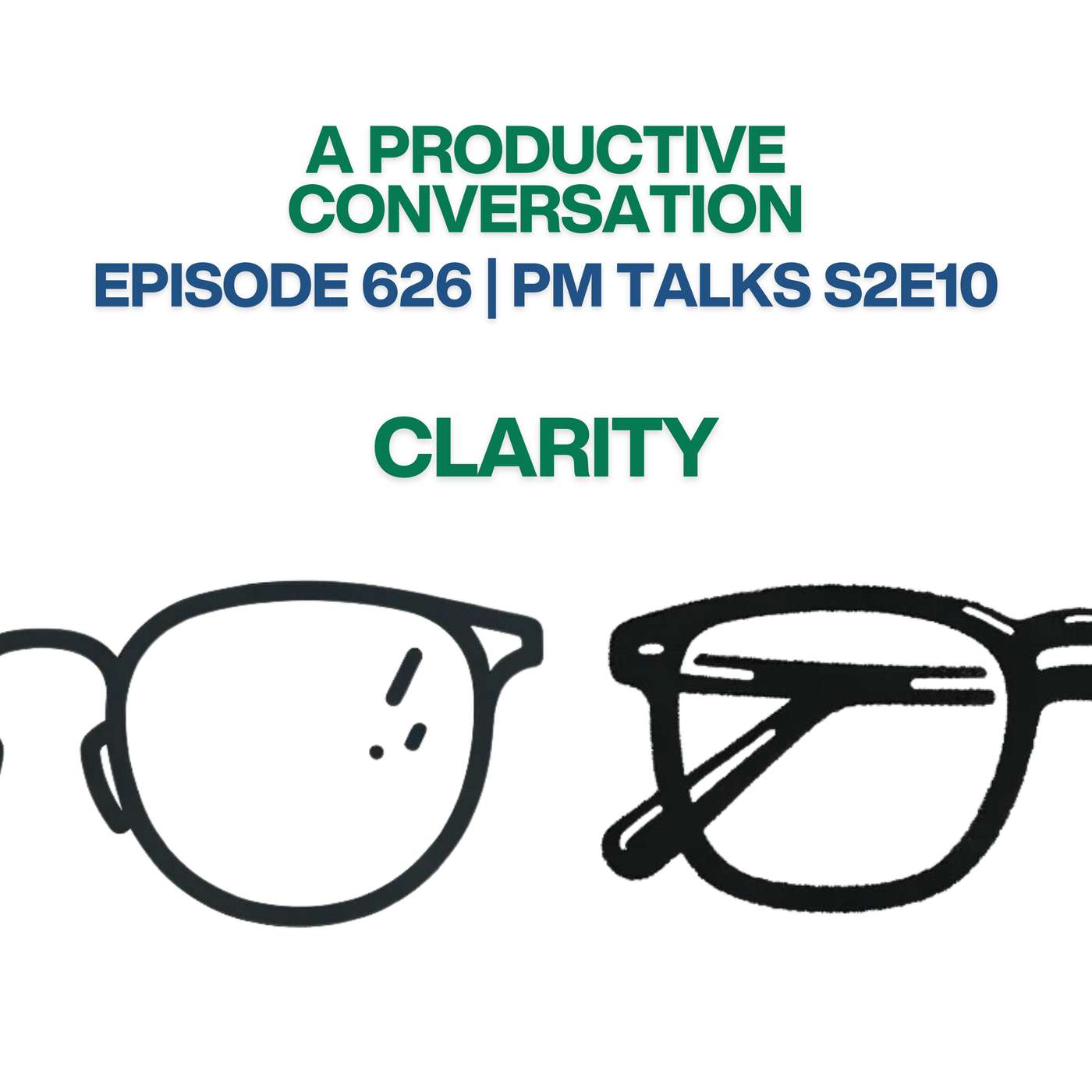
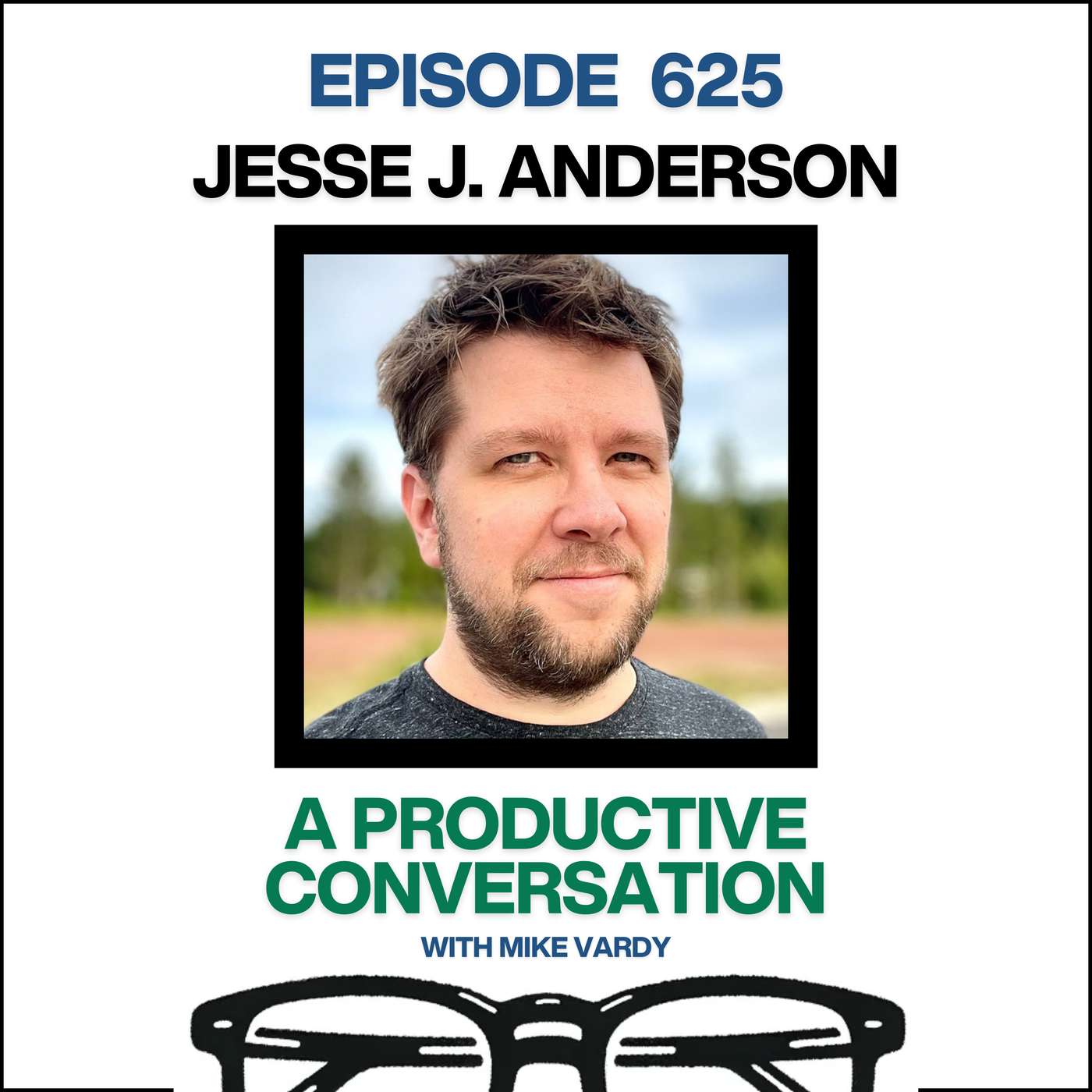
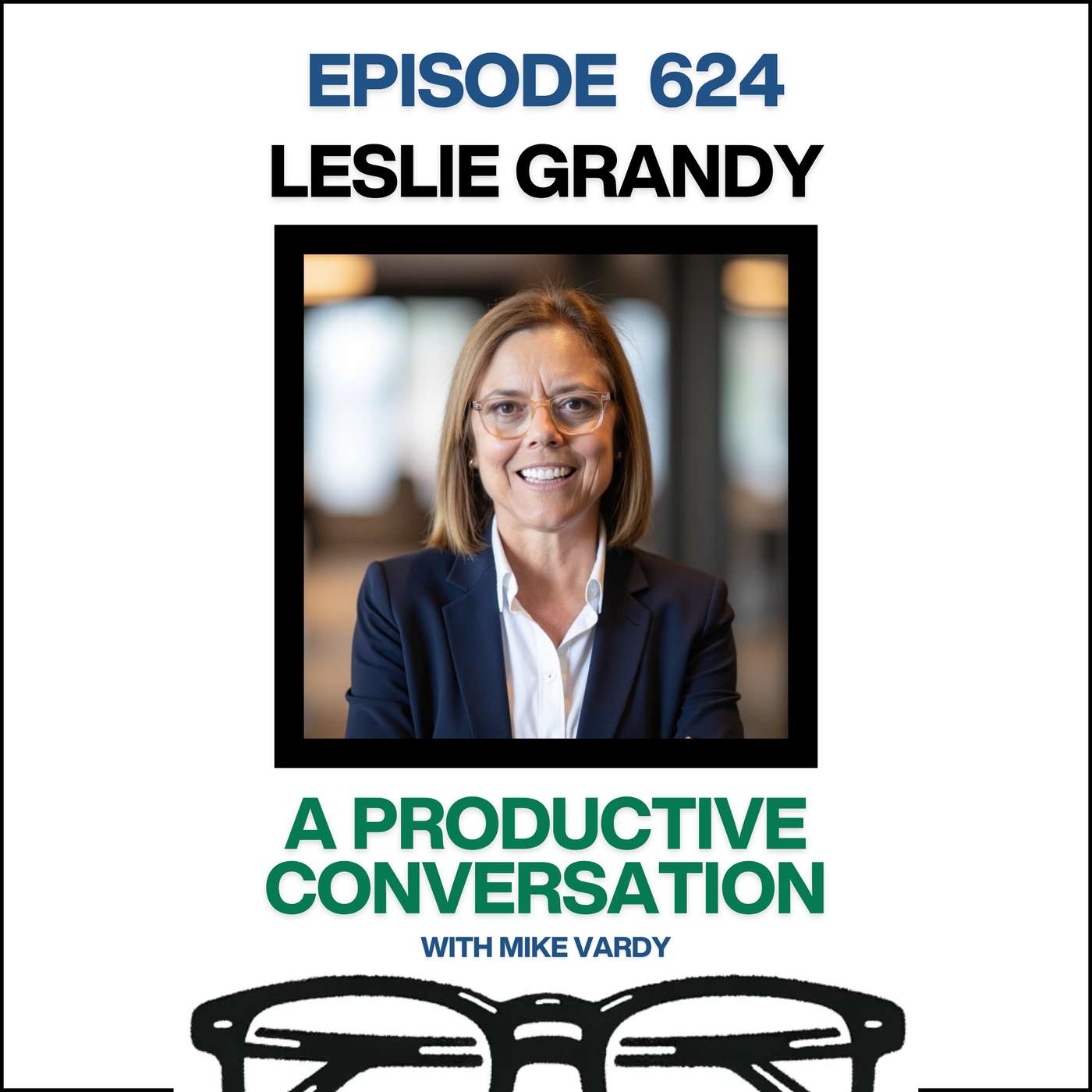
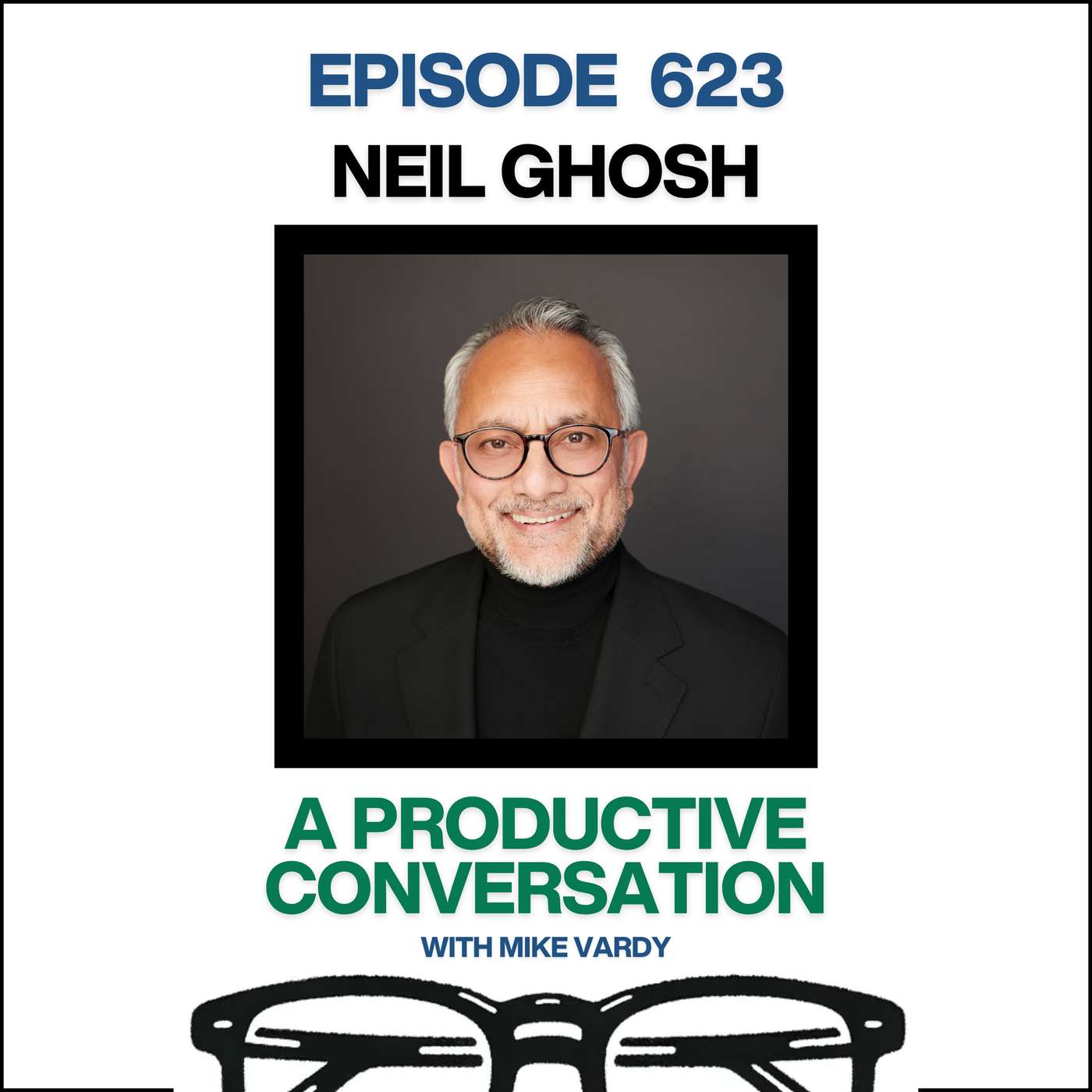
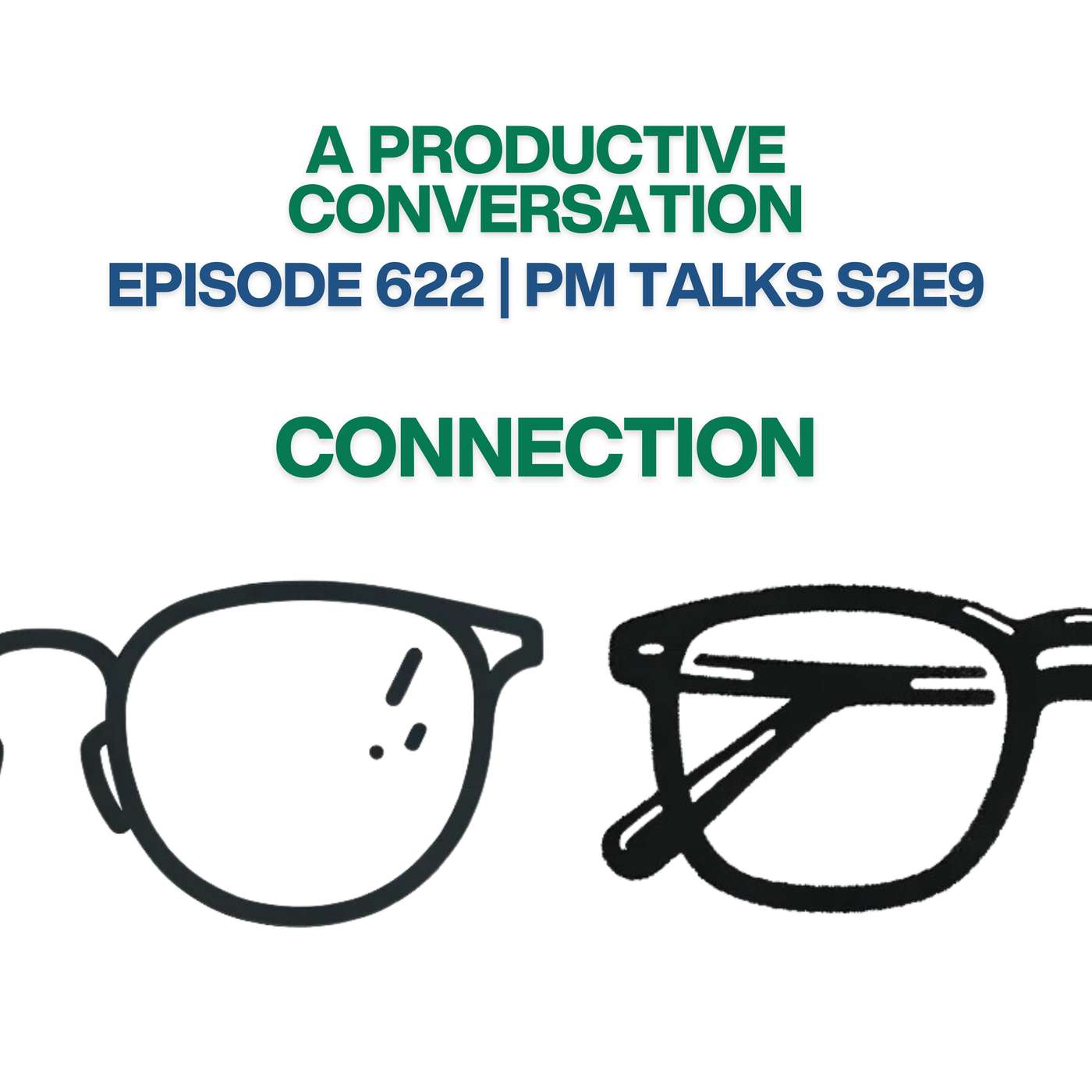
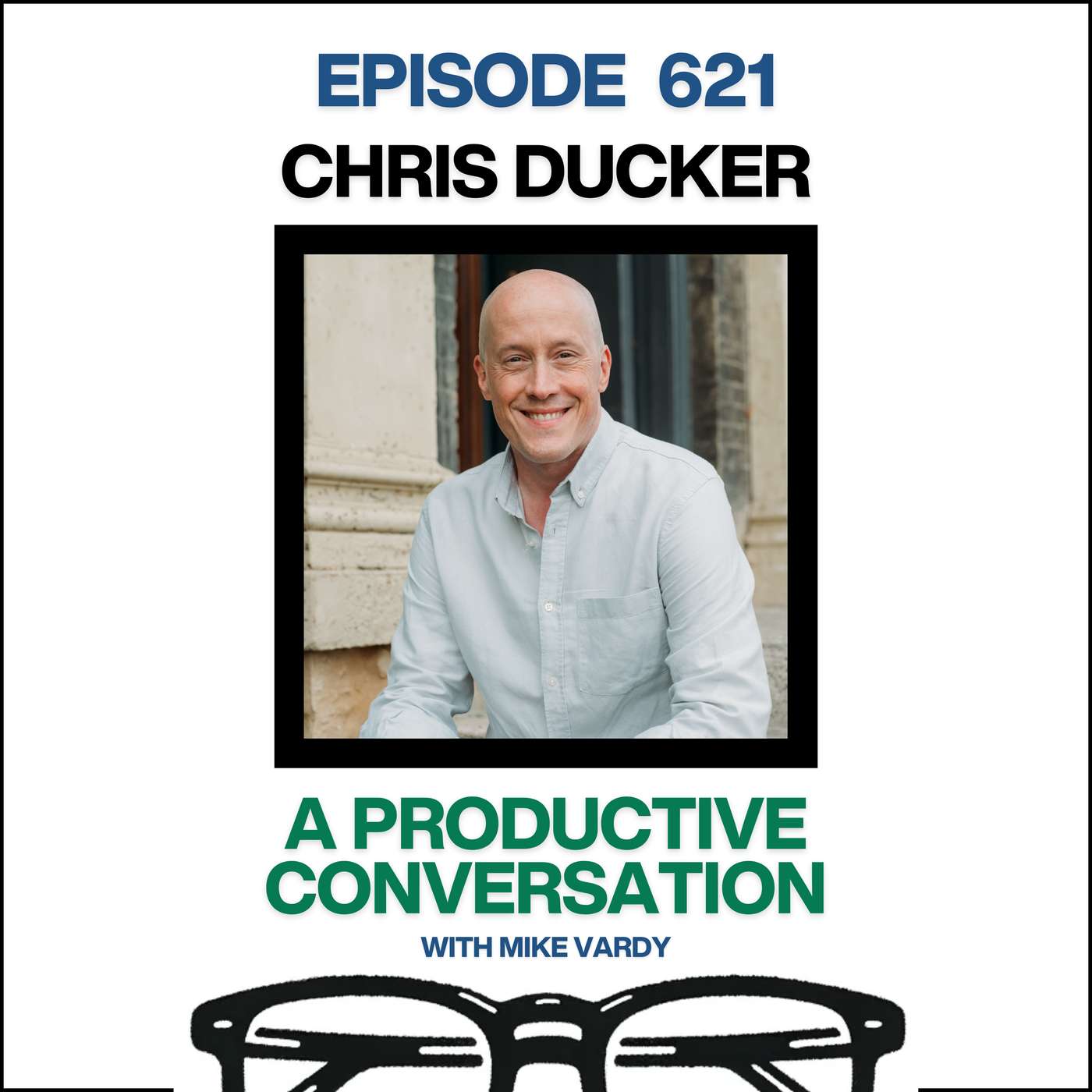
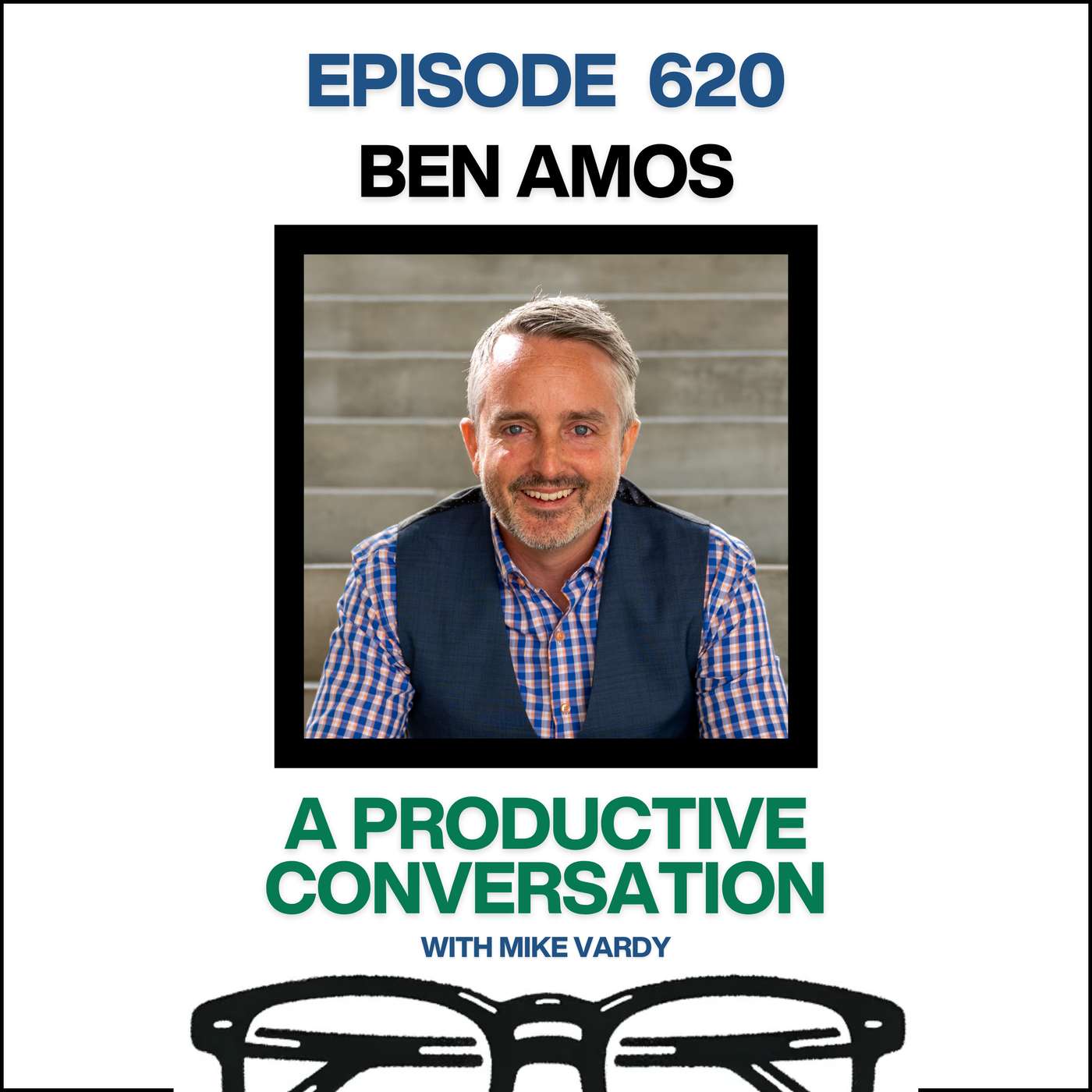
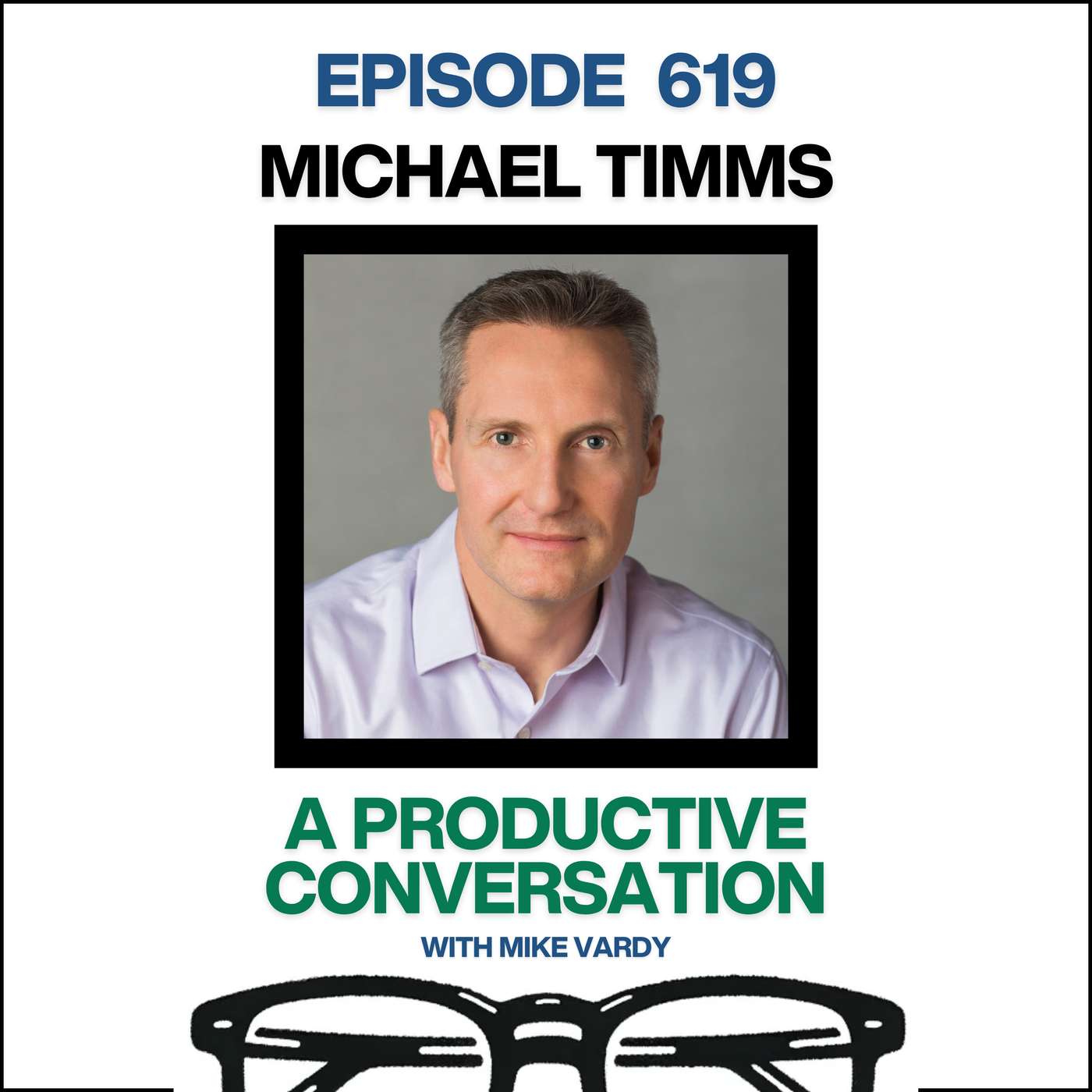



I got a bit lost in the talk about sports, but that's just me
I swear this Greg guy seems to like the sound of his own opinions. He says a lot without really saying a lot on this subject. No thanks. 😴💤
intentionally writing "a crappy first draft"? That's an interesting idea and one for me to consider within my writing.
Another good episode with some good tips for making the most of life right where you are, even if it's not where you want to be today.
Good content. 👍 We all have 24 hours in our day and it's more a case of working SMARTER than harder if we want to get stuff done.
What a fascinating discussion on the power of honesty! 👍🏻
Excellent listen! A lot to take from this. Great work.
Great, Awsome
So true. No buffer, no possible linear productivity system.
Where have you been all my life! I am in the process of buying the company I work for in a multi million dollar deal. I am where I am because I believe in hard work and perseverance. But, something was missing, I recently started falling behind... No matter how hard I worked. I found your podcast while preparing for a road trip. I have been able to implement ideas and methods I have heard while driving. Thank you! It is very rare a person can make a few productivity changes and see such a big impact! What I have finally realized is that old addage "work smarter, not harder"
waiting for the Baron Fig carrier pigeon man! 😅😅
I admire the respect you guys show for each other. Something we all need to learn from. Teaching us all competition is dead due to collaboration.
thanks for this amazing podcast